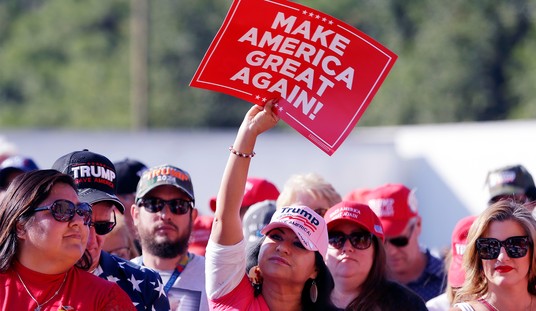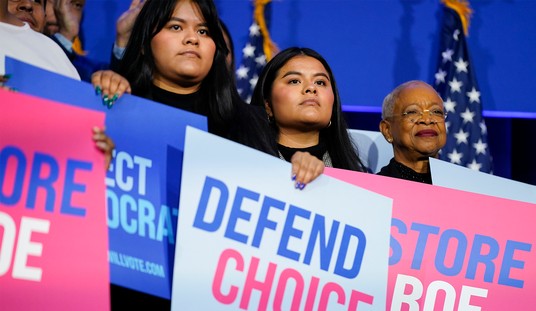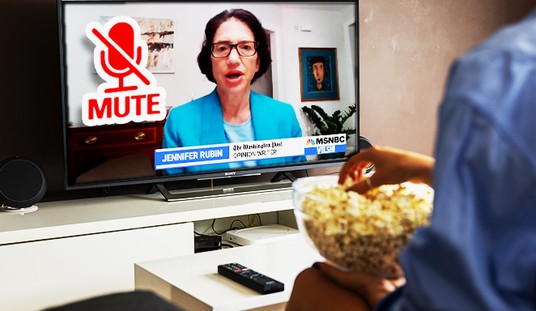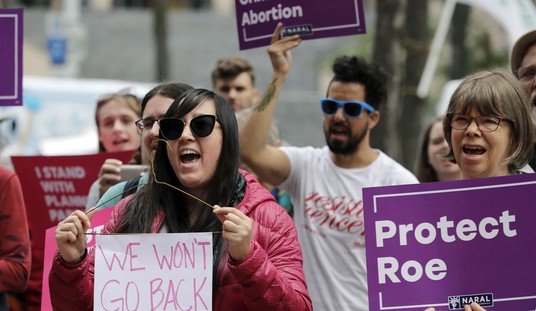A clever commenter on the piece I wrote yesterday mentioned the phrase "under color of law," which refers to abusing one's authority or office to deprive someone of his civil rights. That got me thinking.
A quick note: If you want to join the PJ Media community of commenters, become a VIP! Click here — and be sure use our fabulous discount code SAVEAMERICA at checkout to save 50% OFF your new annual membership!
In an article entitled “Deprivation Of Rights Under Color Of Law,” the DOJ explains the relevant U.S. legal code:
Section 242 of Title 18 makes it a crime for a person acting under color of any law to willfully deprive a person of a right or privilege protected by the Constitution or laws of the United States.
For the purpose of Section 242, acts under "color of law" include acts not only done by federal, state, or local officials within their lawful authority, but also acts done beyond the bounds of that official's lawful authority, if the acts are done while the official is purporting to or pretending to act in the performance of his/her official duties. Persons acting under color of law within the meaning of this statute include police officers, prisons guards and other law enforcement officials, as well as judges, care providers in public health facilities, and others who are acting as public officials. It is not necessary that the crime be motivated by animus toward the race, color, religion, sex, handicap, familial status or national origin of the victim.
Cornell’s Legal Information Institute gives additional details of what is meant by the expression “color of law:”
The term is often used to describe the abuse of power under the guise of state authority, and is therefore illegal. The term was used in the Civil Rights Act of 1871, where the color of law was synonymous with state action and referred to an official whose conduct was so closely associated with a state that the conduct was deemed to be the action of that state. The Act grantscitizens the right to sue government officials and their agents for using their power to violate civil rights.
So we see that "under color of law" is tied to (though not necessarily dependent upon) abuse of authority to discriminate against someone based on their race or color. What's the difference? Via the EEOC, the U.S. government defines it thusly (emphasis added):
Even though race and color clearly overlap, they are not synonymous. Thus, color discrimination can occur between persons of different races or ethnicities, or between persons of the same race or ethnicity. Although Title VII does not define "color," the courts and the Commission read "color" to have its commonly understood meaning - pigmentation, complexion, or skin shade or tone. Thus, color discrimination occurs when a person is discriminated against based on the lightness, darkness, or other color characteristic of the person. Title VII prohibits race/color discrimination against all persons, including Caucasians.
Isn't orange a color?
Don’t laugh. In their loathing of Donald Trump, leftists of all stripes — including those in legal and political careers — disparage him as orange.
Here is Rep. Jasmine Crockett (D-Texas), who laughably calls herself a "Civil Rights & Criminal Attorney," urging Fani Willis to "bury" Trump. She uses the o-word.
Now bury this orange heathen under the jail. No election win for the Presidency can protect him from being ordered to the Georgia Department of Corrections. Fani Willis & her office can continue their prosecution so long as Special Prosecutor Wade is removed. The decision is odd…
— Jasmine Crockett (@JasmineForUS) March 15, 2024
Did any of that post's 29,000 "likes" come from Willis or anyone in her corrupt office?
Related: Trump’s Brilliant Prosecution Juxtaposition Campaign
The Root, a news site that bills itself as "Black News and Black Views with a Whole Lotta Attitude," routinely refers to Trump as "orange," sometimes even capitalizing it to "Orange," as is done with "Black," to indicate a wholly separate race. And these color references almost always appear within articles of a legal nature. "…[The] state-level charges Willis brought down means that the Orange Criminal might do real time…keeping him away from that second term that so many of us fear," is a typical example.
Here's another: U.S District Judge Tanya Chutkan "also issued a warning to Trump to not make inflammatory statements about the case—though that has never stopped his orange ass before." And another: "The orange bastard filed the lawsuit against Manigault Newman, an administration aide, shortly after her book Unhinged was published in 2018."
Up in New York, Letitia James ran for Attorney General by blatantly promising to use the office to go after Trump for undisclosed crimes.
In a report called "Trump Can Finally Stop Paying Contempt Fines To Letitia James' Office," The Root refers to Trump as "the Orange One."
James herself has called Trump "Orange" as well. "What we’ve got to do is stand up and be strong,” the then-New York City Public Advocate told TheWrap’s BE Conference in March of 2018. “The first pillar of our government so far have been the courts. The truth of the administration and the justice. That’s what we will continue to do. We will take this Agent Orange to court."
Watch Tish "Bull" James lead her audience in a chant of "too male, too pale, too stale" in reference to the Trump administration she's gunning for:
Now, I'm not a lawyer, but I'd say Trump's case against these orangephobic bigots is at least as strong as any of the garbage they've been going after him with. I bet an industrious legal researcher could come up with examples of all the principal players — Engoron, Merchan, James, Willis, Bragg, McAfee, Smith, Carroll, Kaplan, Chutkan, etc. — saying, laughing at, or liking instances of Trump being slurred as "orange."
And anyway, the goal is no longer to win: it's to torment, impoverish, and sandbag your opponents.










Join the conversation as a VIP Member